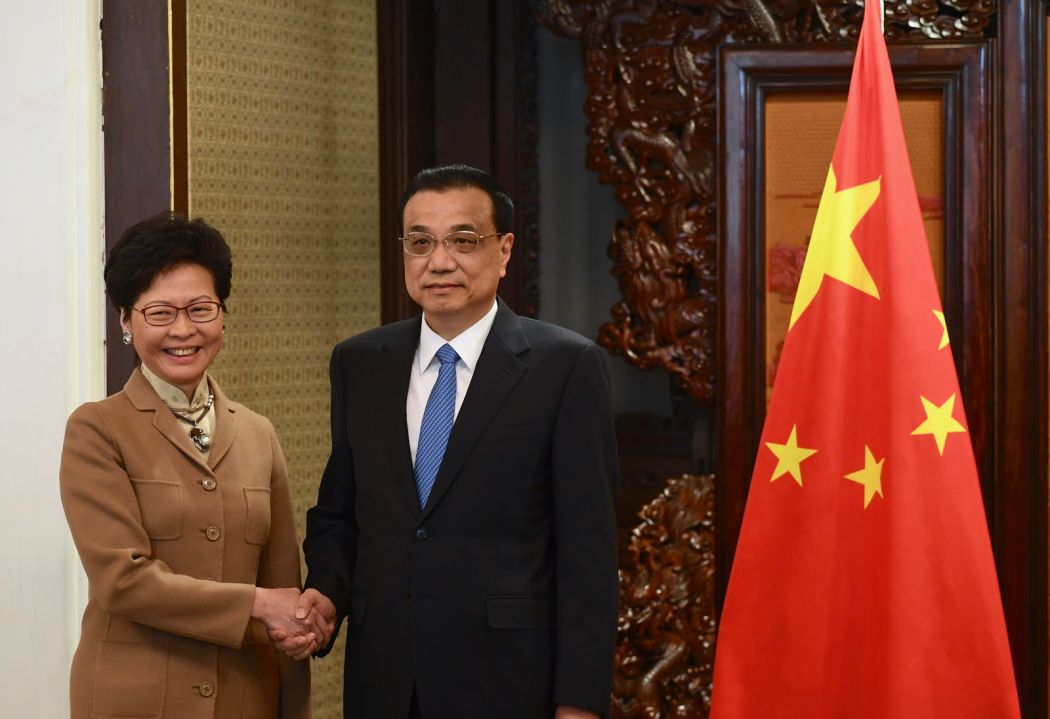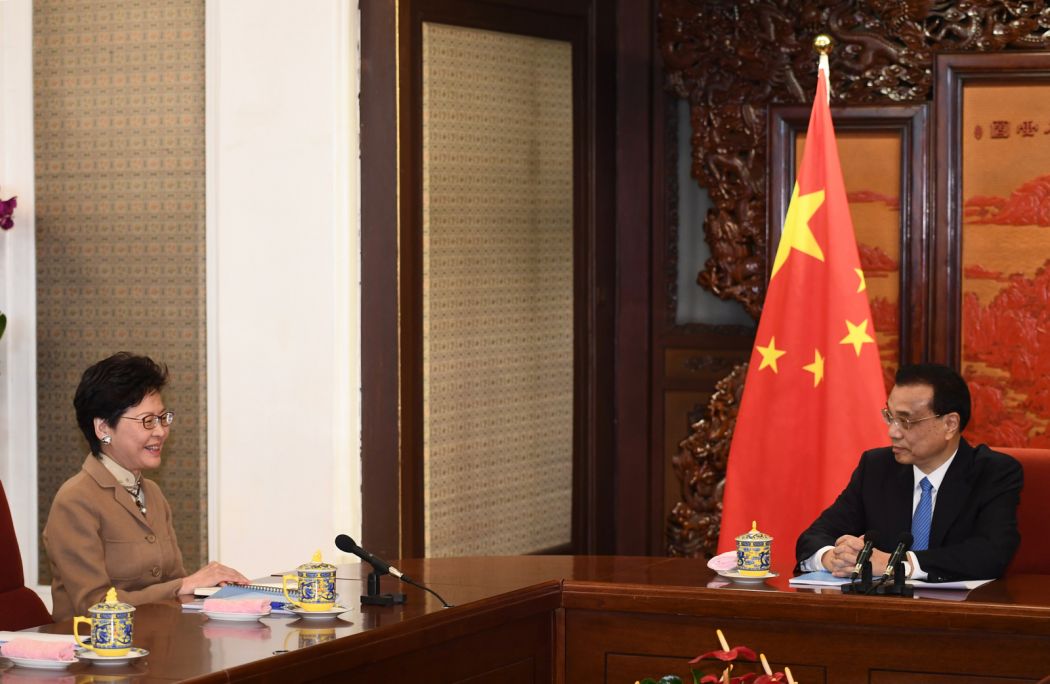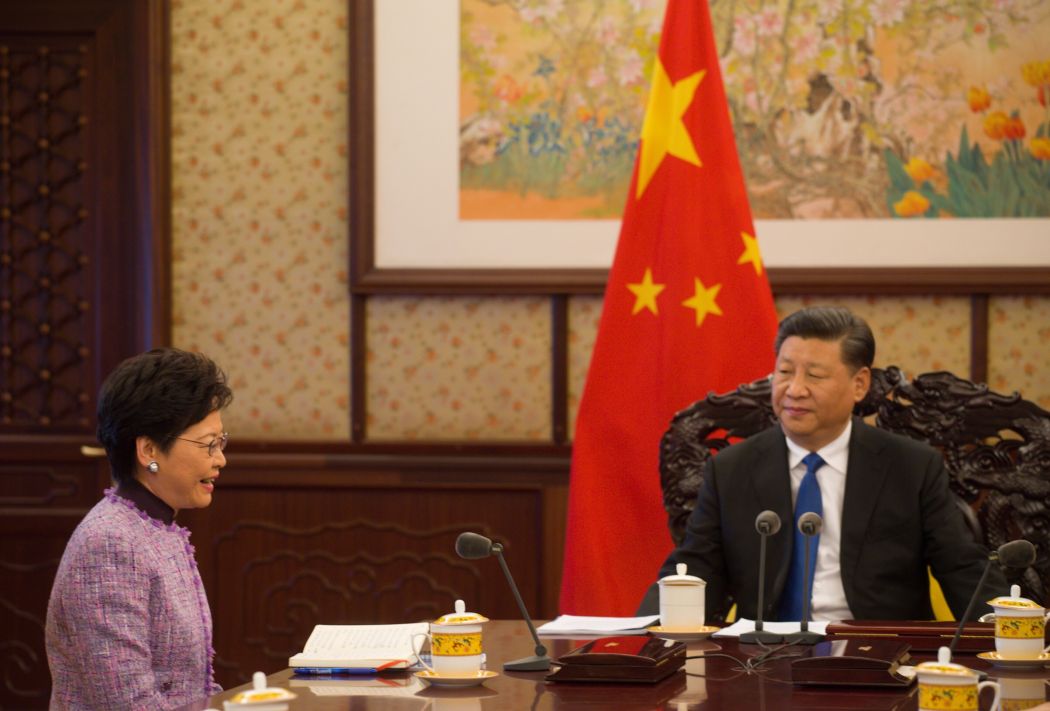Chinese Premier Li Keqiang on Monday praised Hong Kong Chief Executive Carrie Lam for maintaining steady economic growth as a “separate customs territory”.
Hong Kong’s “special” status has been in the spotlight since last month, after a US report described Hong Kong as moving closer to becoming “more like any other Chinese city.”

The annual report of the US-China Economic and Security Review Commission suggested the US review its export control policy for civilian technology with military applications, given that Hong Kong was moving closer to becoming “more like any other Chinese city.”
Lam was on an annual visit to Beijing and met with Li on Monday morning, her second official visit since she took up the post of chief executive in 2017. In her first visit, which took place in December last year, Li did not mention the term “separate customs territory.”
During the session, Li told Lam he was happy that Hong Kong had progressed under Lam. He praised the Hong Kong government’s investment in innovation and technology, alongside how it tackled livelihood issues that concerned society. He also praised Hong Kong’s role in the development of the Greater Bay Area initiative.
The Greater Bay Area refers to areas along the southern coast of Guangdong comprising of nine mainland cities, Macau and Hong Kong.
The initiative aims to deepen cooperation amongst the eleven cities, facilitate in-depth and organic regional integration, as well as drive coordinated regional economic development, but details of the plan have yet to be revealed.
A high degree of autonomy
“Under complex international situations, Hong Kong maintained steady economic growth as a free trade port and a separate customs territory – that was not easy. The central government gives its full recognition to the Hong Kong government,” Li said.

Article 116 of the Basic Law stipulates that Hong Kong shall be a separate customs territory. The 1992 United States-Hong Kong Policy Act, the country’s special policy towards the city – which is different from its policy towards China – is only justified if Hong Kong is “sufficiently autonomous.”
Li also said that the central government will “unswervingly implement the principles of ‘One Country, Two Systems,’ Hong Kong people governing Hong Kong, and a high degree of autonomy.”
“We will strictly adhere to the constitution and the Basic Law. We will also fully support the chief executive and the SAR government in governing Hong Kong in accordance with the law, to maintain the city’s long-term prosperity and stability,” he said.
Li said 2018 marked the 40th anniversary of China’s reform and opening up, and that Hong Kong needed to seize opportunities. Doing so would be beneficial to Hong Kong, and would enable the city to further contribute to China.
Lam responded by saying she was “honoured” to be in Beijing for the visit. She said Hong Kong’s GDP had grown by 3.7 per cent in the first three quarters of 2018, higher than the average growth of 2.7 per cent in the past decade.

Lam then met with Chinese President Xi Jinping on Monday afternoon, who also praised her work.
“Under your leadership, the [Hong Kong] government has defended ‘One Country, Two Systems’ and the Basic Law, planned for Hong Kong’s long-term development, actively participated in the establishment of the Greater Bay Area and the Belt and Road initiatives, focused on issues for the benefits of the public, worked hard on creating conditions for young people,” he said.
Xi said Beijing would continue its unswerving support for the “One Country, Two Systems” principle and Hong Kong’s integration into the country’s strategic development.
Lam thanked the central governments for its support. She particularly thanked Xi for officiating the opening of the Hong Kong-Zhuhai-Macao Bridge in October, and meeting a delegation from Hong Kong in November, that had celebrated the 40th anniversary of China’s reform and opening up.
